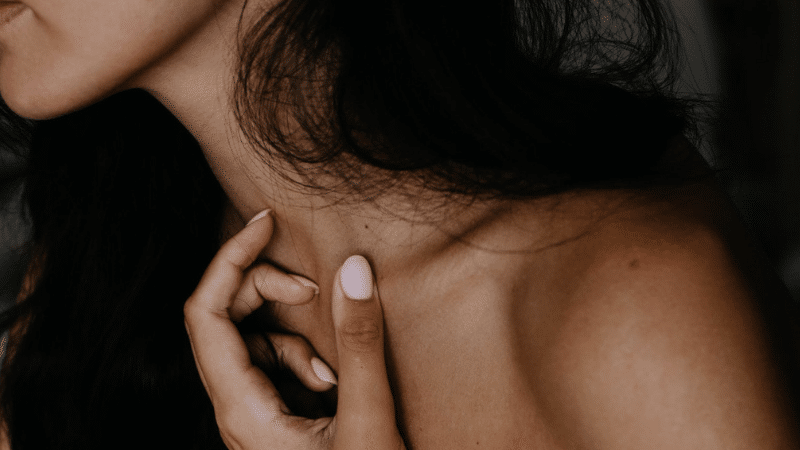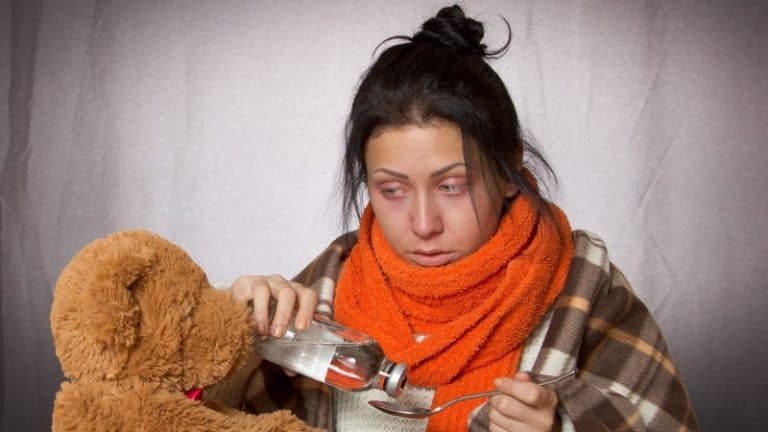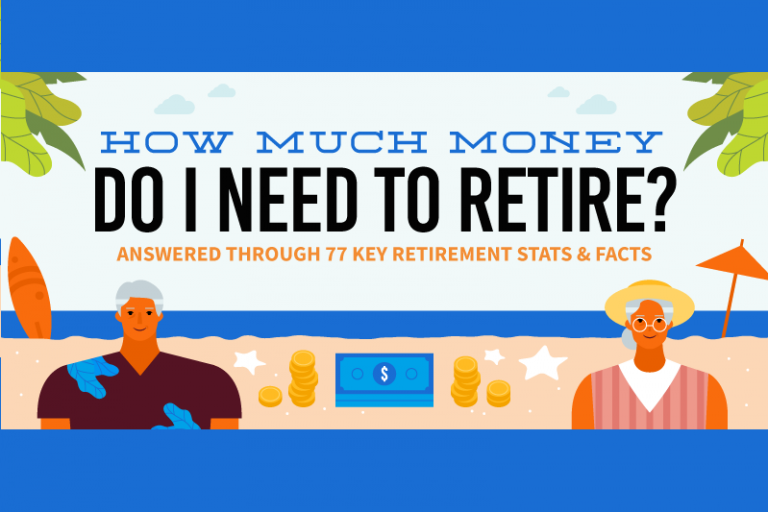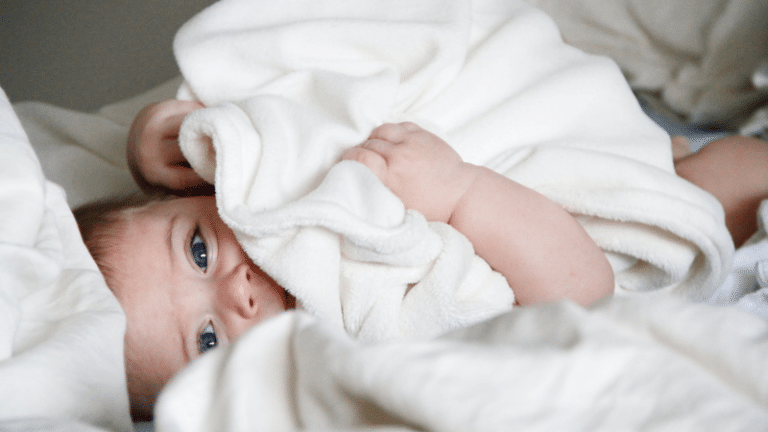How to Get Rid of Body Acne—The Ultimate Guide for 2024

There are essentially three ways of treating body acne. These include adjusting your habits and lifestyle, over-the-counter (OTC) medications, and prescription therapy. All our recommendations dealing with how to get rid of body acne fall under these three methods.
In order to make the right treatment choice, you must know the type of acne and skin you’re treating. That’ll help you decide whether to stop at lifestyle changes or proceed to use OTC medications and prescription remedies.
Acne Types
There are six types of acne, all of which fall under two categories:
- Inflammatory acne
- Non-Inflammatory acne
Four of these are inflammatory, while the other two are non-inflammatory acne. The most common body acne types are large pustules and cysts.
How Your Skin Type Influences Your Body Acne Type
If you decide to go with medication, it’s important to understand the various substances used in acne medications and how they work. Some of the most effective recommendations on how to get rid of body acne center around medications your skin may be sensitive to. Understanding the nature of your skin will give you an idea of how any over-the-counter (OTC) acne remedies may interact with it. It’s important to mention that different acne products suit different skin types.
If your skin is oily, you need particular ingredients in your acne-fighting product. This includes substances that penetrate the skin deeper and have anti-inflammatory and antibacterial properties. Other compounds are more suited to dry skin because they help lubricate and maintain skin moisture. Also, some substances kill bacteria and prevent the buildup of dead skin cells while offering other benefits.
We’ll explain most of these medications and the ingredients you should look for depending on your skin type and acne severity. If you’re still not sure how to prevent body acne after trying one of the treatments, you might need to combine several for the best results.
Non-Inflammatory Acne
As the name suggests, non-inflammatory acne doesn’t infect the hair follicles or sebaceous glands. This means there’s no inflammation of nearby skin tissues, and the likelihood of any pus forming is low. They’re also not painful or irritating and don’t usually form deep in the skin. Non-inflammatory acne includes whiteheads and blackheads. They may contain some pus or look black, but that’s about all. They’re also the easiest type of acne to treat.
Inflammatory Acne
This acne forms deep in the skin and infects our pores and even the sebaceous glands. It inflames nearby skin cells and triggers defensive action by our body that produces a lot of pus and even inflames more areas.
You can identify inflammatory acne by the redness or skin discoloration it causes. It’s severe body acne that’s painful or irritating to touch and can feel solid. Inflammatory acne is usually wide and may or may not have pus at the tip. The four types of inflammatory acne include pustules, papules, nodules, and cysts.
How Inflammatory Acne Starts
The inflammation occurs when a type of skin bacteria gets trapped in the pores and begins to feed on the oily substance that lubricates our skin. The sebaceous glands produce sebum, an oil that helps keep our skin moist and fresh. But it can also be food for this skin bacteria.
This bacteria continues to spread as it feeds on the sebum. The body recognizes this buildup as infection and begins to pump white-blood cells to that spot to fight the infection. The result is infected fluid mixed with dead white blood cells, called pus. The bacterial growth inflames more and more cells, leading to a wide and painful patch on the skin.
Body Acne Treatment for Non-Inflammatory Acne
If you’re having non-inflammatory breakouts, effective treatment depends largely on what’s causing them. Some causes are internal, while others are external. You can attenuate the effects of external causes by changing your habits and routine. On the other hand, internal changes may require medical intervention. Generally, effectively controlling your acne requires treating both internal and external causes.
External Causes
External causes of body acne include:
- Skin and hair products
- Poor hygiene
- Medications
- Contraceptives
- Clothing
- Diet
- Pollution
- Sun exposure
- Any other controllable/avoidable factors that come from outside
Internal Causes
The main internal body acne causes are:
- Stress
- Hormones
- Genetics
- Some underlying health conditions
Acne caused by any of these requires that you deal with the underlying cause; otherwise, it won’t go away permanently. Stress triggers more androgen production, which increases inflammation and oily skin. In most cases, hormones play a role in adult body acne. While hormonal acne tends to appear more frequently on the chest and back, acne mechanica (typically caused by friction) usually attacks the shoulders and neck.
Simple Remedies
If your acne is non-inflammatory and comes from external factors, the first step to dealing with it is to control your contact with these factors. Maintain proper hygiene by:
- Bathing regularly
- Cleaning your bedsheets
- Eating healthy foods with moderate calories
Bathe Regularly
More importantly, bathe after intense sweating and wash any clothes you’ve been sweating in. In other words, while spending hours on a high-quality home rowing machine might be healthy, forgoing the shower afterward makes you more prone to breakouts.
Select Hair and Skin Products Carefully
Use hair and skin products that don’t cause or worsen body pimples. As a rule of thumb, go for noncomedogenic skin products, i.e., products that don’t contain substances that clog pores.
Avoid Skin Friction
Keep away from anything that causes you stress and avoid friction between foreign objects and your skin as much as possible. This means you shouldn’t wear tight-fitting clothing or anything else that might put pressure on your skin for too long. You should also limit your use of sports equipment, backpacks, certain caps and straps, and try not to sit too long, not even in your favorite massage chair.
Others
Another effective means for getting rid of body acne of the non-inflammatory type is to avoid unnecessary exposure to sunlight and air pollution. Also, quit or moderate your use of contraceptives, unsuitable sunscreens, lotions, hair products, etc. Popping acne can worsen the situation by increasing inflammation, spreading the acne, and causing scarring. So, you might also want to restrict yourself from popping those pimples.
OTC Medication Remedies
You can also use OTC medication for mild non-inflammatory acne. They’re usually more effective than the lifestyle changes noted above and provide faster results. That’s because they’re made specifically for this purpose. Several products for body acne common in local and online drug stores can help you control non-inflammatory acne. These include:
- Exfoliants
- Cleansers
- Body wash products
OTC medications include lotions, soaps, or sprays. You may try these where cleansers fail. Sprays are convenient to use because you can reach every inch of your body easier. Ensure that these chemicals dry out before wearing your clothes to avoid any sticking.
You can combine two or more OTC remedies when dealing with acne. Whatever OTC treatment you adopt, ensure to monitor your skin for adverse reactions, especially in combination treatment.
Exfoliation
Exfoliation is the act of removing dead skin cells. It minimizes the chance of having pores clogged with dead skin cells. Physical and chemical exfoliants are excellent means of removing body acne. Physical exfoliants include:
- Gritty scrubs
- Sponges
- Clothes
- Cleansing pads
- Microdermabrasion
- Other materials used to remove dead skin cells manually
However, be mindful of physical exfoliants because they can cause skin irritation or abrasion. Chemical exfoliants are products that use chemicals to get rid of dead skin cells. No abrasive agent is used in a chemical exfoliant. Instead of physically washing off the dead skin cells, these chemicals dissolve or loosen the bond between these cells and our skin.
Examples include:
- Glycolic acid
- Salicylic acid
- Tretinoin
- Chemical peels like trichloroacetic acid (TCA)
Treating Inflammatory Acne
In addition to the lifestyle changes previously mentioned, you can try OTC medications for inflammatory acne. However, because such acne is more serious than non-inflammatory acne, it usually requires special body acne treatment products. You can use chemical exfoliants, body washes, and similar products to eliminate body acne. Unlike non-inflammatory varieties, severe acne cases like cysts are difficult to treat by any DIY method.
Exfoliants
Products that contain salicylic acid or glycolic acid perform other functions apart from peeling dead skin cells off your body. For instance, to the unique properties of glycolic acid, products containing it will hydrate dry skin and repair any sun damage. Just like potent vitamin C serum products, they can also lighten scars and improve skin tone.
Moreover, exfoliants containing these acids help keep the skin moist and reduce the size of hair follicles to minimize any chances of clogging. Products with glycolic acid are ideal for people with dry skin.
Likewise, salicylic acid also has other functions apart from removing the dead cells. Namely, it’s oil-soluble, which allows it to dissolve through the oil in your pores and reach the sebaceous glands. Due to its anti-inflammatory properties, this deep skin penetration makes salicylic acid more effective against inflamed acne, especially the deeply rooted types. Additionally, salicylic acid is good for whiteheads and blackheads, making it a great overall body pimple treatment.
Body Wash or Cleanser
Being among the more popular OTC medications for acne, these products kill bacteria on your skin. They contain substances like benzoyl peroxide, which effectively clean dead skin cells and deal with excessive oil production. Dermatologists use most of these cleansers to treat acne patients. You can also substitute your soap for a good acne-fighting body wash.
Benzoyl peroxide body wash is the top choice for body acne by dermatologists. Leave it on your skin for 3–5 minutes before rinsing it off. Drug stores are the most common places to find these body wash agents. Most of these products are approved by dermatologists and contain substances that make them gentle on the skin.
Sprays or Medicated Lotions
Sprays can do the trick if you have difficulty applying acne treatments to those hard-to-reach body parts. Lotions may also be easier to apply than other forms of OTC medication. The most important thing to focus on is the presence of potent ingredients in the body acne treatments you choose.
Prescription Medication
A time comes when you need the help of a doctor or dermatologist, especially when OTC medications fail or when you notice excessive dryness, irritation, peeling, or any unusual development on your skin. If an OTC medication is effective but causes discomfort to your skin, it’s best to discontinue use and seek professional medical help.
As a rule of thumb, before using any OTC medications for severely inflamed body acne, you should consult a healthcare provider. This is because inflamed acne is very likely to cause scars, and the more severe the inflammation, the greater the chances of lasting scars.
Although dermatologists are perfectly qualified to control severely inflamed body acne, receiving treatment from one doesn’t guarantee an immediate solution. Body acne takes some time to heal, and you may have to try several products before finding a good fit for your skin and condition.
Conclusion
We hope this guide has been helpful to those who wanted to know how to get rid of body acne. Basically, the exact process will depend on your body acne type, skin type, and cause. If you don’t know the cause, try a general approach to eliminate all probable body acne triggers.
If the situation doesn’t improve after a few weeks, try OTC medications for three months, changing and combining them. If you don’t get positive results, seek the help of a doctor or dermatologist.






